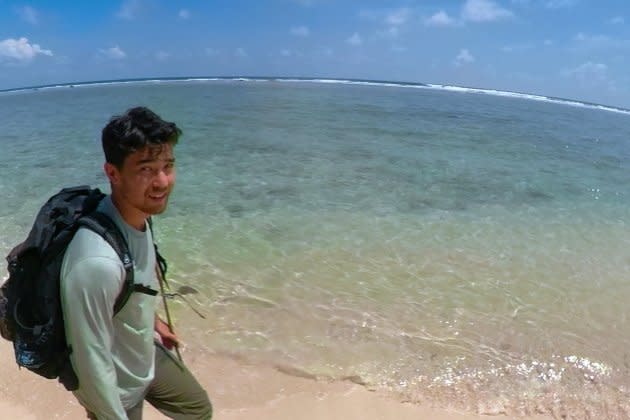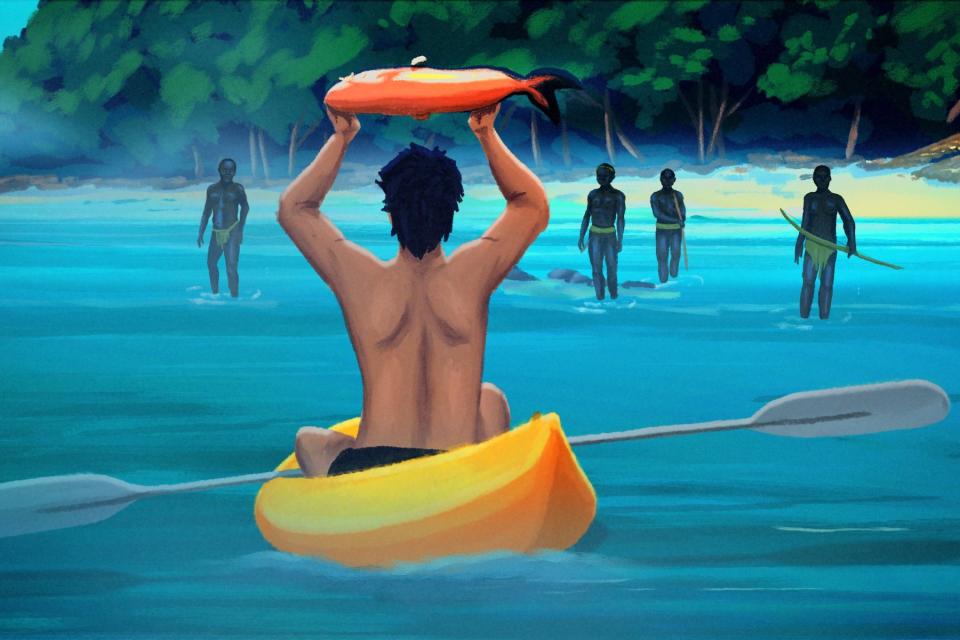He Tried to Convert a Remote Tribe to Christianity and Got Killed
- Oops!Something went wrong.Please try again later.
- Oops!Something went wrong.Please try again later.

It’s not difficult to scorn John Chau. A 26-year-old evangelical Christian with a taste for outdoor adventure, he undertook a one-man mission in 2018 to North Sentinel Island, an extremely remote and unreached part of India, to bring the gospel of Jesus to the Sentinelese. Even if you don’t know the story, it’s clear from the start of the new National Geographic documentary The Mission that things did not go well. The film is a reminder that, from the non-missionary perspective, and even from a less reckless missionary perspective, such quests represent the height of hubris and arrogance and that unreached peoples generally don’t want to be reached, even if your cosmology determines that they’re going to hell unless you “save” them.
The Mission makes this point quite convincingly, but there’s a lot more going on in this admirably complex film. Directors Amanda McBaine and Jesse Moss, the wife-and-husband team behind Boys State, seek to understand Chau and the culture that drove him into what even a fellow church friend describes as “pursuing a fantasy.” That culture has deep roots in colonialism, a hyper-Christianized field of boys’ adventure stories, and what Chau’s mournful but philosophical father, a Christian himself, calls “the radical evangelical extreme.”
More from Rolling Stone
The film sifts through all of this with clear eyes, imagination, and a lack of overt judgment. McBaine and Moss immerse you in Chau’s thinking, using his diary (read by actor Lawrence Kao) and the reminiscences of friends and teachers to flesh out a young man who seems like a pretty decent, soulful guy that pushed himself way too far (with some assistance from people who should have known better) and defined himself as an instrument of The Lord.
The most poignant counterweight is provided by the words of John’s father, Patrick, from a letter written to the filmmakers (also read by an actor, David Shih). Patrick emerges as sad and disappointed with himself for not preventing his son’s tragic folly. We also hear from some wise heads, including historian Adam Goodheart, who wrote his own North Sentinel chronicle The Last Island; and linguist Daniel Everett, whose work among the Pirahã people of the Amazon rainforest helped transform his own Christian faith into atheism.
“It’s very unfortunate that we live in the 21st century and we still have people believing first-century myths enough to die for them.” That’s Everett summarizing Chau’s fate. But believe they do. Some Christians were quick to portray Chau as a martyr for Jesus, rather than an intruder speaking an indecipherable language and potentially carrying fatal diseases. This story, of course, is older than America. It takes supreme arrogance to proclaim a remote island of hunters and gatherers “Satan’s last stronghold,” as Chau did North Sentinel Island. But he was nothing if not earnest, and seemingly desperate to do something he believed mattered. McBaine and Moss let these different sides of Chau breathe and bounce off each other; they’re more interested in the thorny humanity of the story than any kind of gotcha rhetoric.

The film marshals a swirl of images and resources, including original, watercolor-like animation and clips of everything from the original King Kong to cringey ethnographic documentaries of yore. Chau’s boyhood touchstones included Robinson Crusoe, The Adventures of Tintin, and the missionary aggrandizement fable End of the Spear. This National Geographic doc also gets credit for casting a critical eye on… National Geographic, which for years painted its own portrait of “noble savages” in remote lands. The myths are deeply embedded in Western consciousness, religious and secular.
It’s been a rough couple of weeks for missionaries in the documentary world, what with The Mission and the HBO docuseries Savior Complex, about a Christian missionary who decided to play doctor in Uganda. These are both strong pieces of work, though quite different in approach. Where Savior Complex is an evenhanded investigation of facts, The Mission is an engrossing philosophical exploration — a personalized profile of a particularly aggressive brand of Christianity. In the film, Pam Arlund, of the missionary organization All Nations International (who predicted great success for Chau’s mission), describes not letting a people hear about Jesus as a “violation of their human right.” As it turns out, that kind of thinking can get somebody killed.
Best of Rolling Stone

